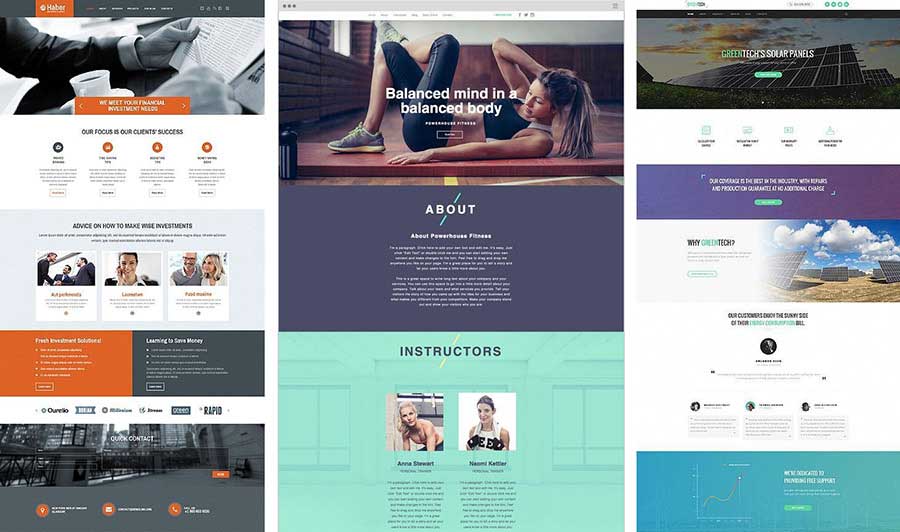- Research and use relevant keywords throughout your website, including in page titles, meta descriptions, and headings: By researching and using keywords that are relevant to your content and your target audience, you can help search engines understand what your website is about and improve your chances of ranking for those keywords. This includes optimizing your page titles and meta descriptions, which are the text that appears in the search results, to include keywords and provide a clear and compelling summary of what the page is about. It also includes using keywords in headings and subheadings throughout your website to help search engines understand the structure and content of your pages.
- Create high-quality, original, and informative content that provides value to your website visitors: Search engines favor websites that provide valuable and informative content to users. By creating high-quality, original, and informative content, you can attract and engage your target audience, increase the time they spend on your website, and improve your chances of ranking well in search results.
- Optimize your website’s technical elements, such as site structure, URL structure, and website speed: Search engines also take into account the technical elements of a website when ranking it. This includes things like the site structure, which is the way the pages on your website are organized and linked to each other, the URL structure, which is the way the URLs of your pages are structured and the website speed, which is how fast your website loads on different devices. By optimizing these elements, you can help search engines understand and access your website’s content more easily and improve your chances of ranking well in search results.
- Build high-quality backlinks from reputable websites: Backlinks are links from other websites to your website. Search engines view backlinks as a sign of credibility and authority. By building high-quality backlinks from reputable websites, you can improve your website’s visibility and credibility in the eyes of search engines, which can help boost your rankings.
- Use header tags (H1, H2, H3) to organize your content and make it easy for search engines to understand: Header tags, such as H1, H2, and H3, are used to organize and structure the content on your website. By using header tags correctly, you can help search engines understand the structure and content of your pages, which can improve your chances of ranking well in search results.
- Use alt tags to describe images and other media on your website: Alt tags are used to describe images and other media on your website. By using alt tags, you can help search engines understand what the images and media on your website are about and improve your chances of ranking well in search results.
- Create a sitemap to help search engines easily crawl and index your website: A sitemap is a file that lists all the pages on your website and provides information about each page, such as when it was last updated. By creating a sitemap, you can help search engines easily crawl and index your website, which can improve your chances of ranking well in search results.
- Use analytics tools to track your website’s performance and identify areas for improvement: Analytics tools, such as Google Analytics, can help you track the performance of your website, such as how many visitors you are getting, where they are coming from, and how they are interacting with your website. By using analytics tools, you can identify areas of your website that need improvement and make changes to improve your chances of ranking well in search results.
- Use social media to promote your website and increase its visibility: Social media can be a powerful tool for promoting your website and increasing its visibility. By actively engaging with your target audience on social media and sharing content from your website, you can drive traffic to your website and improve your chances of ranking well in search results. Additionally, having a strong social media presence can also help you build backlinks to your website, which can also help improve your rankings.
- Regularly update your website with fresh, relevant content: Search engines favor websites that regularly update their content with fresh and relevant information. By regularly updating your website with new and engaging content, you can keep your audience engaged, increase the time they spend on your website, and improve your chances of ranking well in search results.
- Utilize structured data to help search engines understand the content of your website: Structured data is a way to provide information about your website’s content to search engines in a format they can understand. This can include things like the type of content on a page, the date it was published, and who the author is. By using structured data, you can help search engines understand the content of your website more easily, which can improve your chances of ranking well in search results.
- Make sure your website is mobile-friendly and responsive: With the increasing use of mobile devices to access the internet, search engines are placing a greater emphasis on mobile-friendly websites. By making sure your website is mobile-friendly and responsive, you can ensure that it is accessible and easy to use on a wide range of devices, which can improve your chances of ranking well in search results.
- Use internal linking to help search engines understand the structure of your website and the relationships between pages: Internal linking is the process of linking to other pages on your website from within your website. By using internal linking, you can help search engines understand the structure of your website and the relationships between pages, which can improve your chances of ranking well in search results.
- Address any issues with broken links and redirections: Broken links and redirections can negatively impact your website’s performance in search results. By regularly checking for and addressing any issues with broken links and redirections, you can help ensure that search engines can easily access and understand your website’s content, which can improve your chances of ranking well in search results.
- Avoid using black-hat SEO techniques, such as buying backlinks or keyword stuffing: Black-hat SEO techniques are methods that are used to artificially inflate a website’s rankings in search results. These techniques are against the guidelines set by search engines and can result in penalties or even being removed from search results. By avoiding black-hat techniques and focusing on building a website that provides value to users and is optimized for search engines, you can improve your chances of ranking well in search results.



